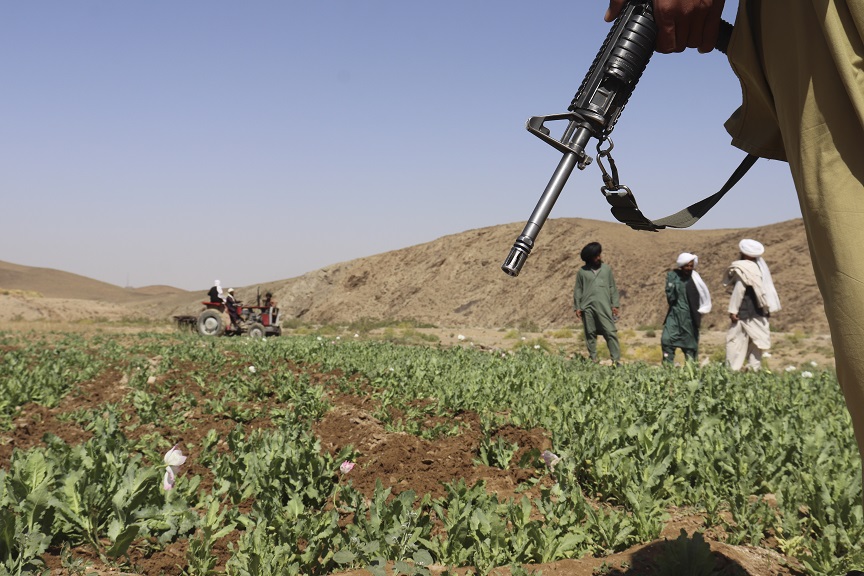
The cultivation poppyfrom which the raw material in the heroin production process is obtained, increased by 32% within a year at Afghanistanhis first report indicates UN on the issue after they regained power in the Southeast Asian country Talibanon August 15, 2021.
“It has now reached 2,330,000 acres”warns the United Nations Office on Drug Control and Crime Prevention (ONUDC), noting that opium prices “have taken off” after the Taliban banned cultivation in April 2022.
This year’s harvest was largely exempted by decree. Afghan farmers will now have to decide in early November whether to plant poppies for next year, without knowing if or how the ban will be implemented, explains the Office, which is based in Vienna, the Austrian capital.
They have “caught up in the illegal economic activity of opiate addicts”, said Gada Wali, the Executive Director of ONUDC, according to a press release from the Office. The 57-year-old Egyptian called on the international community to “intensify its interventions”.
Afghanistan is by far the largest poppy producing country in the world. Opium and heroin are derived from it. “Farmers’ income from the sale of opium tripled within a year”ONUDC emphasizes.
They have risen from €430 million in 2021 to €1.4 billion in 2022, the highest amount recorded “for years”. It accounts for 29% of the value of Afghanistan’s agricultural output as a whole, up from 9% a year earlier.
Rising incomes do not necessarily mean an increase in purchasing power, while inflation also took off in the period under review, with prices of food staples rising by around 35% on average, ONUDC points out.
Opium seizures in countries neighboring Afghanistan indicate that opium and heroin trafficking in the country has far from stopped.
80 to 90% of the opium and heroin trafficked worldwide comes from Afghanistan, mainly the southwestern part of the country, according to the UN.
Poppy cultivation was also briefly banned by the Taliban in 2000, a few months before their fundamentalist Sunni regime was toppled by a US-led international military coalition in response to the September 11, 2001 attacks.
In twenty years of guerrilla warfare against foreign powers and Western-backed governments, the Taliban have heavily taxed poppy growers in areas under their control. Cultivation thus became an important img of income for them.
During their presence in Afghanistan, the US and its NATO allies made efforts to replace poppy crops with grain or saffron. Their initiatives failed, in part because the Taliban controlled the main poppy-growing zones.
Source: News Beast
I’m Robert Neff, a professional writer and editor. I specialize in the entertainment section, providing up-to-date coverage on the latest developments in film, television and music. My work has been featured on World Stock Market and other prominent publications.






